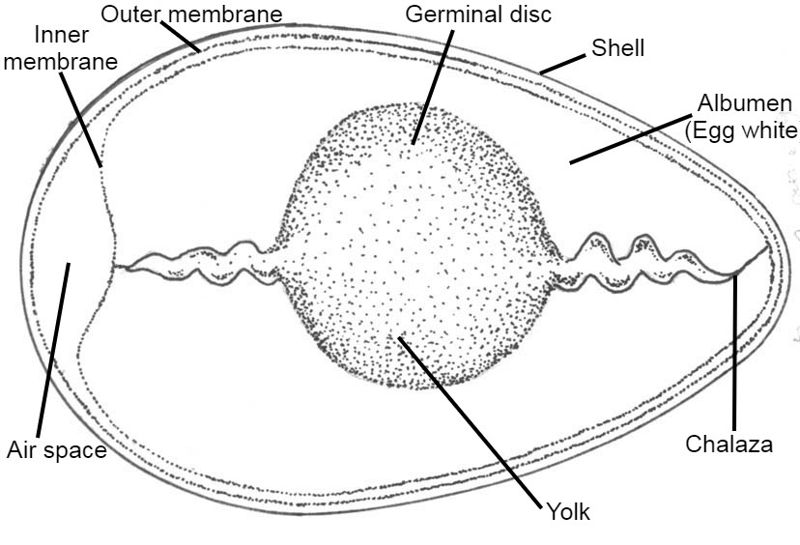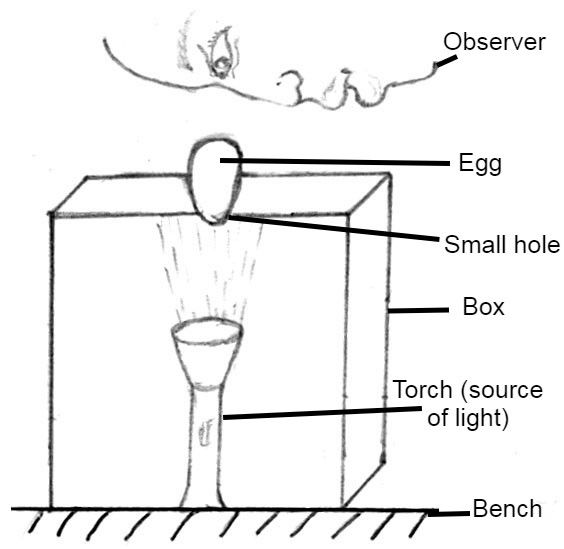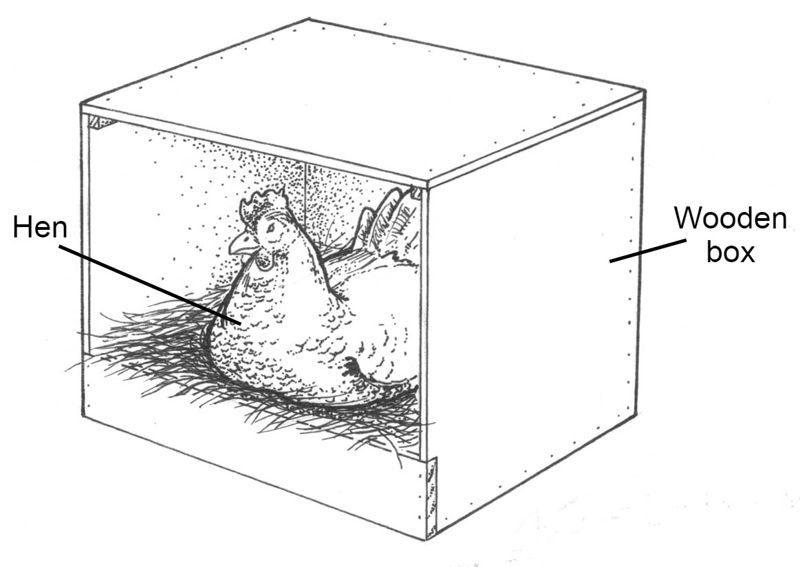Under this method, all the conditions necessary for the hatching of the eggs are provided artificially. It is done in an equipment called an incubator. For successful artificial incubation, the following factors must be considered:
Temperature
The temperature during incubation should be maintained at around 380C. Higher temperatures above 390C are lethal due to dessication and may increase activity within the egg, which results in a lot of carbon (VI) oxide being produced, killing the embryo. At 360C, very few chicks develop. Modern incubators have their temperature automatically regulated. Eggs are usually stored at temperatures of 130C. Once put in the incubator, the initial temperature should be about 350C, and thereafter increased gradually to 380C to minimise death of embryos due to temperature shock.
Relative humidity
This must be maintained at around 86%. A relatively higher humidity leads to low moisture evaporation within the incubator which results in dampness. This dampness predisposes the eggs to infections from the humid air. The consequence is high mortality in the hatched chicks. Low relative humidity increases the rate of evaporation leading to desiccation of the embryo.
Ventilation
For higher hatchability, proper air circulation must be maintained in the incubator. Poor ventilation leads to increased accumulation of carbon (IV) oxide in the eggs thus leading to death of embryos.
Egg turning
This is quite important in the management of an artificial incubator. If eggs are not turned, hatchability will be low. This is because the embryos get stuck within the egg shell and fail to come out. Under natural incubation, the hen usually turns the eggs every one hour. In artificial incubation, eggs must be turned after every 4 hours. Do not turn the egg within the last 3 days of incubation as the chicks have already positioned themselves ready for hatching. Modern incubators, however, have automatic turning devices.
Hygiene and sanitation
Incubators must be fumigated after every hatching period using potassium permanganate. The incubation room should always be kept clean. This is done to reduce chances of infection of the chicks.
Management of the incubator
The following must be observed for artificial incubation:
- For simple incubators, eggs are turned at 1800 every 4-6 hours except during the first and last three days of incubation since these are the critical stages of embryonic development.
- Remove any broken eggs.
- Maintain the temperature at the set range of 37.50C - 39.00C.
- Add water as necessary to maintain the correct relative humidity.



